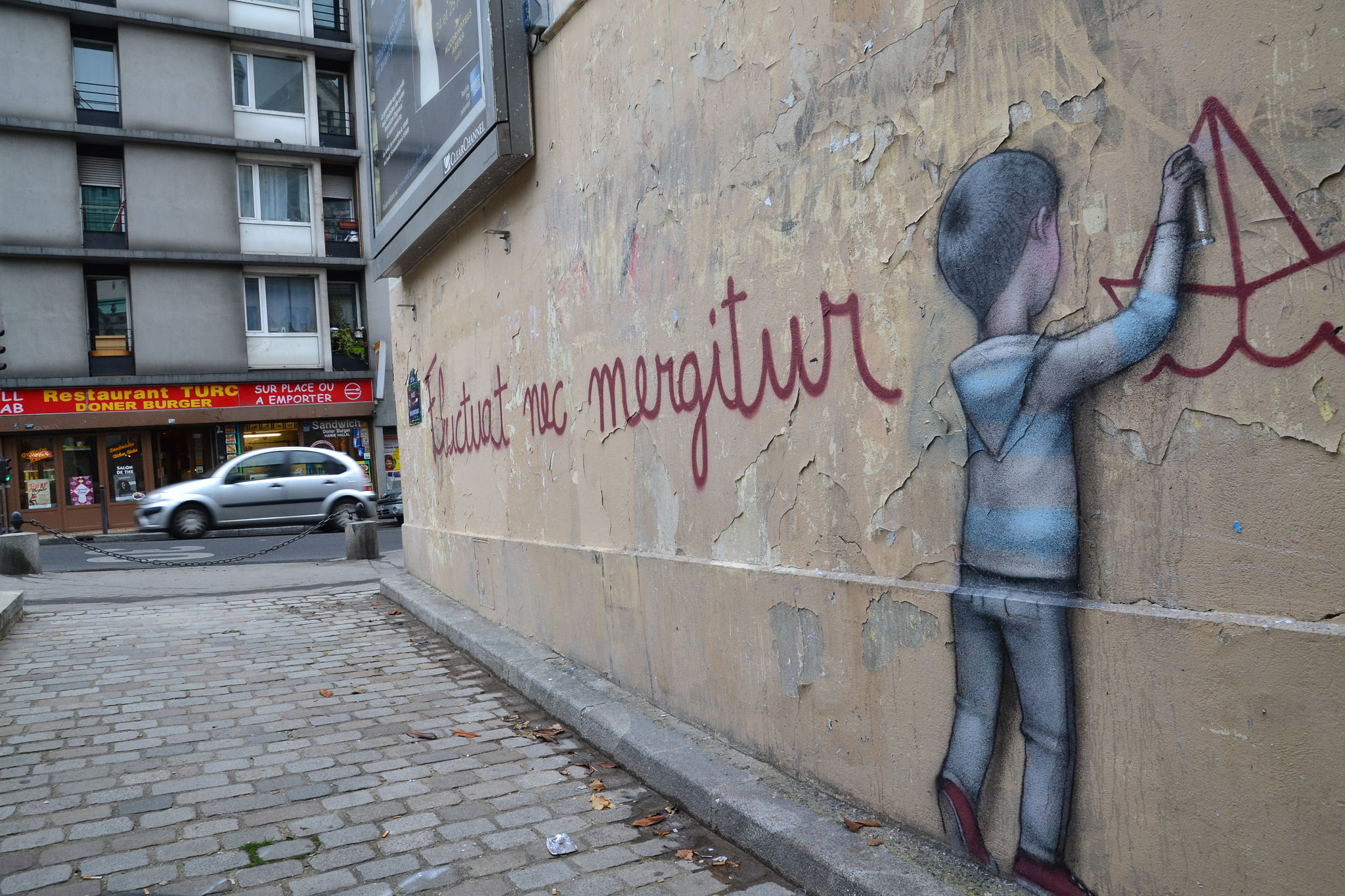Paris: Fluctuat Nec Mergitur

Fluctuat Nec Mergitur – Tossed but Not Sunk – is the motto of the city of Paris and has appeared on the city’s coat of arms for centuries. These three Latin words have never been truer than in the weeks and months since the events of November 13. Fluctuat Nec Mergitur has become the symbol of resistance and strength against senseless acts of terrorism, and started to appear throughout the city in the days following the events, be it on official municipal billboards, graffiti on walls and buildings, hashtags on social media, or simply handwritten on white paper and taped to street-facing windows in shops and homes.
We also saw more French flags than any time in recent memory – bleu blanc rouge. Not only on official or government buildings or businesses, but on balconies, in cafés and restaurants, or hand painted and colored on glass windows and doors.
The fallout of the attacks and the constant reminder of Fluctuat Nec Mergitur have led to non-stop conversations related to resilience, rebirth, national identity and what it means today to be French. Just who is French? And why?
We at Accent are taking this question to our students and making it a moment of learning – an opportunity for cultural engagement with their host country. These questions can be studied across a variety of disciplines – Political Science, Philosophy, Literature, Urban Development, Sociology, Public Policy, and Religious Studies.
The Accent Paris team is developing lectures and visits to municipal offices in ethnically diverse neighborhoods to discuss city policies and the “values of the Republic”; from African, North African, and Chinese markets to examine effects of immigration on health and diet; to NGOs developing innovative mentor programs for children in difficult life situations, many of whom come from non-French backgrounds; as well as on-site lectures exploring the cités jardins and villes nouvelles urban development schemes developed in response to 19th and 20th century immigration; and panels with immigration lawyers to understand the complex French law related to birthright, immigration, and dual-nationality.
Museum visits and walking tours uncover Black Paris, Jewish Paris, LGBT Paris and the Paris of exiled and expatriated artists and writers. Study tours to Bordeaux or Nantes challenge students to consider the impact of colonialism and the slave trade on the development of the country.
We will examine, discuss, and study not only how immigrants fold into, change, and affect the host French culture and society, but also how the French relate to and integrate other cultures into the complicated, diversified country that France is today.